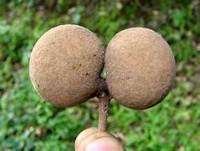Teratogenic Effect of Ethanol Extract of Yellow Root Stem (Coscinium fenestratum (Gaertn.) Colebr) on Mice http://www.doi.org/10.26538/tjnpr/v8i1.8
Main Article Content
Abstract
The yellow root (Coscinium Fenestratum (Gaertn.) Colebr) has several bioactive compounds with antimicrobial, inhibitors of intestinal parasites, antidiarrhea, anti-inflammatory, anti-hypertension, anti-tumour, hepatoprotective, anti-cancer and anti-malarial properties. This study evaluated the phytoconstituents and the teratogenic effect of yellow root stem ethanol extract in mice during pregnancy. A total of 24 pregnant female mice divided into 4 groups were used for this study. Group 1 served as negative control (NaCMC 1 %), and groups 2, 3, and 4, respectively, were given extracts at doses of 200, 400, and 800 mg/kg bw. The extract was administered in the organogenesis phase (6th to 15th day of pregnancy). The mice were weighed during the experimentation period and sacrificed on the 18th day. The fetus was removed, and the number of fetuses was counted and weighed. The morphological, visceral and skeletal abnormalities were examined after staining with Bouin’s solution. The phytochemical screening revealed that the ethanol extract of yellow root stems contains alkaloids, saponins and terpenoids. The results showed that the administration of yellow root stem extract during pregnancy affected the weight of the mice (p<0.05). The plant extract did not affect the number and weight of the fetus significantly (p>0.05). Morphological examination of the fetus fixed with Bouin’s solution did not show disability in the gap of the sky of the mouth, but there were signs of bleeding in the head and stomach. Similarly, the staining results revealed abnormalities in the phalanx and caudal bone. The study concluded that the use of the yellow stem extract may impact teratogenic deformities in experimental animals.
Downloads
Article Details

This work is licensed under a Creative Commons Attribution-NonCommercial-NoDerivatives 4.0 International License.
References
Sutrisna E. Herbal Medicine. Surakarta: Muhammadiyah University Press; 2016.
Wahyuni DK, Ekasari W, Witono JR, Purnobasuki H. Toga Indonesia. Surabaya: Airlangga University Press; 2016.
Sandra D, Argueta E, Wacher NH, Silva M, Valdez L, Cruz M. PMK RI Herbal Medicine Formulary. Ciencias Biológicas. 2016.
Syofyan S, Almahdy A1, Wulandari A, Alen Y, Diliarosta S, Kurniawan H, Noverial N, Putra PP, Dillasamola D. Effects of Ethanol Extract of Sungkai (Peronema canescens Jack.) on Fertility of Female Wistar Mice (Mus musculus L.). Trop J Nat Prod Res. 2023;7(3):2547–50.
Pratiwi R, Saputri FA, Nuwarda RF. T Level of Knowledge and Use of Traditional Medicine in the Community: Preliminary Study of the Community in Hegarmanah Village, Jatinangor, Sumedang. Dharmakarya. 2018, 7(2), 97-100
Pramono S, Paramidhita RYT, Marini M, Bachri MS. Comparative Effects of Yellow Root (Arcangelisia flava (L.) Merr.) Decoctions with Water and Brackish Water on Kidneys and Uterus in Wistar Rats. Maj Obat Tradis. 2020. DOI:10.22146/mot.55178
Marpaung M, Wulandari W. Characterization And Phytochemical Screening Of Dried Yellow Roots Extract (Fibraurea Chloroleuca Miers). Prosiding Seminar Nasional Kimia 2017. 145-154 Prosiding Seminar Nasional Kimia. 2017.
Sianturi S, Muti AF, Perdana MB. Teratogenic Test of Instant Noodle Boiled Water During Pregnancy in Female Mice (Mus musculus L.) Through Observation of Fetal Morphological Abnormalities. J Sains dan Kesehat. 2020;2(3):182–1923.
Handayani S, Wirasutisna KR IM. Phytochemical Screening and Characterization of Rose Guava Leaf Simplicia (Syzygium jambos Alston). 2017; 5(3), 174-183
Utami YP, Umar AH, Syahruni R KI. Standardization of Simplicia and Ethanol Extract of Leilem Leaves (Clerodendrum minahassae Teisjm. & Binn.). 2017; 2(1), 32-39
1Rudy Agung Nugroho. Getting to Know Mice as Laboratory Animals. 2018, Mulawarman University Press. Samarinda, 1-177
Almahdy A. Experimental Teratology. Padang: Andalas University; 2012.


